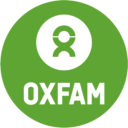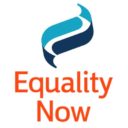As an organisation committed to gender equality, Oxfam recently conducted research on specialist funders of women and girls, in partner with I.G. Advisors. We spoke to 26 funders and nine women’s rights organisations about their motivations, priorities and the challenges they face, to see how funders and practitioners can work together more effectively. We found that despite sharing many of the same principles and ambitions, there is a mismatch between the needs of women’s rights organisations and what many funders are offering. Gender inequality is increasingly becoming a mainstream topic of discussion, however, women’s rights organisations still lack the funding they require and rarely experience feminist philanthropy in practice.
Our report is part of a growing body of evidence, seeking to inform and advance philanthropic funding to women and girls – you can find some great examples of this here and here. In this blog, we want to celebrate partnerships that embody the principles of feminist philanthropy, with stories of successful partnerships from three women’s organisations that helped shape the recommendations in the report.
1. Mind the gap
Recognise that women’s rights organisations have been chronically underfunded and are trying to meet an increasing demand for their services. These challenges can be particularly acute for specialist organisations working with minority women.
Case study: Apna Haq and the CSA Centre
Many women’s rights organisations are operating in an environment of increasing demands on their resources and an acute lack of funding. Additionally, specialist service provision can get lost in more generic or wider issue funds. At Apna Haq, we support women and girls from black and minority ethnic (BME) communities who are living in Rotherham to escape violence. We have sometimes found that the needs of the BME communities we work with can be lost in the funding ecosystem, where differentiated approaches for specialist needs are not always recognised. However, our partnership with the Centre of Expertise on Child Sexual Abuse (CSA Centre) recognised the lack of reporting of child abuse from BME communities and was led by our expertise to respond to this. They supported our unique accredited 4 Cs programme – Challenge, Change, Consolidate and Champion: understanding sexual violence issues within BME communities – to train a pool of trainers in the community. They also helped us to access further funding sources (we gained additional funding to cover the costs of the training evaluation). Ultimately, they understood that a specialist approach was needed and supported us in getting the voice of BME communities heard.
2. Quality as well as quantity
Long-term, flexible funding allows organisations the security, freedom and autonomy to thrive.
Case study: Equality Now
Flexible, core funding allows us as a women’s rights organisation to remain agile and responsive to the needs of the women and girls we serve, as well as adaptable to a constantly changing context. The leadership support of one institutional funder in particular has transformed Equality Now’s work and impact through its support over the years. By providing us with significant, multi-year commitments to our work (seven figure commitments in three-year grant cycles), we have been able to plan for longer-term programming and organisational development, while maintaining a healthy accountability. While the funder was interested in outcomes and results and wanted to see clear progress towards agreed upon goals, they gave us complete freedom to determine how best to achieve our aims within that larger framework. Perhaps most importantly, the funder understood that the nature of our work (systematic, sustainable change) takes time and an intensive investment in staff. The funder was uncommonly realistic about where its funds could be invested to achieve that and what could be achieved in only a few years. Reporting was not burdensome but streamlined and limited to one written report a year. However, we were expected to – and did – remain in frequent, timely and informal touch with grant officers with updates which also helped to build a direct and trusting relationship such that formal reporting became even more simplified over time. We plan our activities carefully, but there is always an emergency situation we haven’t anticipated. Flexible funding allows us to adapt to critical developments in the sector and make the most of strategic opportunities.
3. See the big picture
Focus on making a contribution to long term change, rather than the attribution of results to specific funding in the short term.
Case Study: Women for Women International and People’s Postcode Lottery
Women for Women International began receiving funding from Postcode Equality Trust, raised by players of People’s Postcode Lottery, in 2017. The relationship has been characterised from the start by a long-term vision, and willingness to listen and learn. Their willingness to provide core funding during the first year of establishing a physical presence in Iraq allowed us to create the infrastructure and systems we needed to deliver real change into the future, rather than fixating on quick results within the grant period. With the recent escalation of violence in Iraq and Syria, our team in northern Iraq is now fully equipped and poised to respond to increasing demand for our services. Our ability to effectively support women at the front line of conflict and crisis, is in large part thanks to this far-sighted funding approach and willingness to do things differently. The team at People’s Postcode Lottery are always keen to learn more about the contexts we work in, and how our intervention brings measurable change at community level. Their commitment to really listening to us and understanding how we work with local actors and other funders means they become better partners, offering the support we really need to create transformative change.
_
Project-specific grants are often based on the assumption that incremental change occurs on a linear pathway of progress, however, for women’s rights organisations working to transform systems the reality is very different – progress can go backwards as well as forwards. Often these periods of instability are when funding is needed the most.
Fundamentally, feminist philanthropy is rooted in trust. To be truly led by women and girls, funders must trust the organisations they work with and fund them in a way that allows both stability and flexibility. Although simple and well-understood in principle, our research and other evidence from AWID shows that women’s rights organisations are not often experiencing this type of funding in practice. When funder allies set a precedent for feminist philanthropy and showcases the impact of working in this way, they can influence and inspire others to build the world we want to see, in true partnership.
This article was co-authored by Oxfam GB, Apna Haq, Equality Now, and Women for Women International
The research report was written by Oxfam (Kate Sillis, Tillie Peacock and Joy Reddy) and I.G. Advisors (Alisha Miranda) and can be read here.









Comments (0)